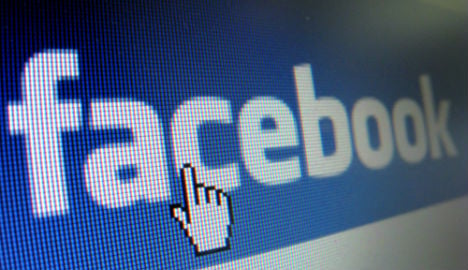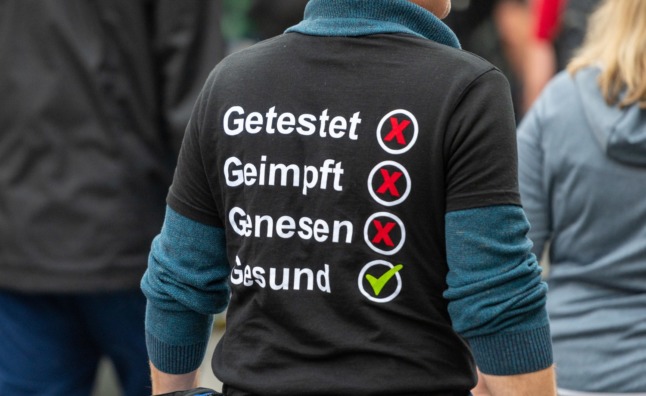Germany threatens Facebook with hate speech law
A senior German politician said on Friday that social media giants like Facebook should face penalties if they fail to tackle hate speech, after a surge in xenophobic comments linked to the migrant influx.
Published: 15 October 2016 08:58 CEST

A Facebook logo on a computer screen. Photo: Stephan Jansen/dpa
The threat from Volker Kauder, a key member of Chancellor Angela Merkel's party, follows a similar warning by Justice Minister Heiko Maas, in a growing sign of German politicians' frustration with such websites.
“The time for round-tables is over. I've run out of patience,” said Volker Kauder, chairman of the Christian Democratic Union's parliamentary group.
Facebook and Twitter have seen a rise in anti-migrant commentary in Europe's biggest economy, as public misgivings grow in some corners over the almost 900,000 asylum seekers who arrived last year.
The government has pushed the US online networks to take swift action to combat hate speech.
Despite a pledge in December last year by Facebook, Twitter and Google to examine and remove offensive posts in Germany within 24 hours, users have reported that their requests to take down hate speech have often hit a wall.
Kauder said that if the companies fail to remove offensive posts within a week after they have been reported, then they should be penalised, with a suggested fine of 50,000 euros ($55,000) per post.
In an interview last week, Justice Minister Maas noted that the online giants had taken action only in a minority of cases.
Out of the cases reported to Twitter in Germany, only one percent was erased, he said, while for Facebook, the proportion was 46 percent. “If the companies refuse to meet their responsibility, then there will be
consequences,” Maas told business daily Handelsblatt.
A first step would be to require them to offer more transparency on how they are dealing with the issue, by publishing annually how many illegal hate commentaries have been reported and how many have been dealt with, he said.
“If criminal content is not swiftly deleted, then we need to consider how to make Facebook and Twitter liable,” he said, adding that “this Damocles sword hangs over them”.
“They now have time to prove themselves before we impose a legal requirement,” he warned.
Url copied to clipboard!


 Please whitelist us to continue reading.
Please whitelist us to continue reading.